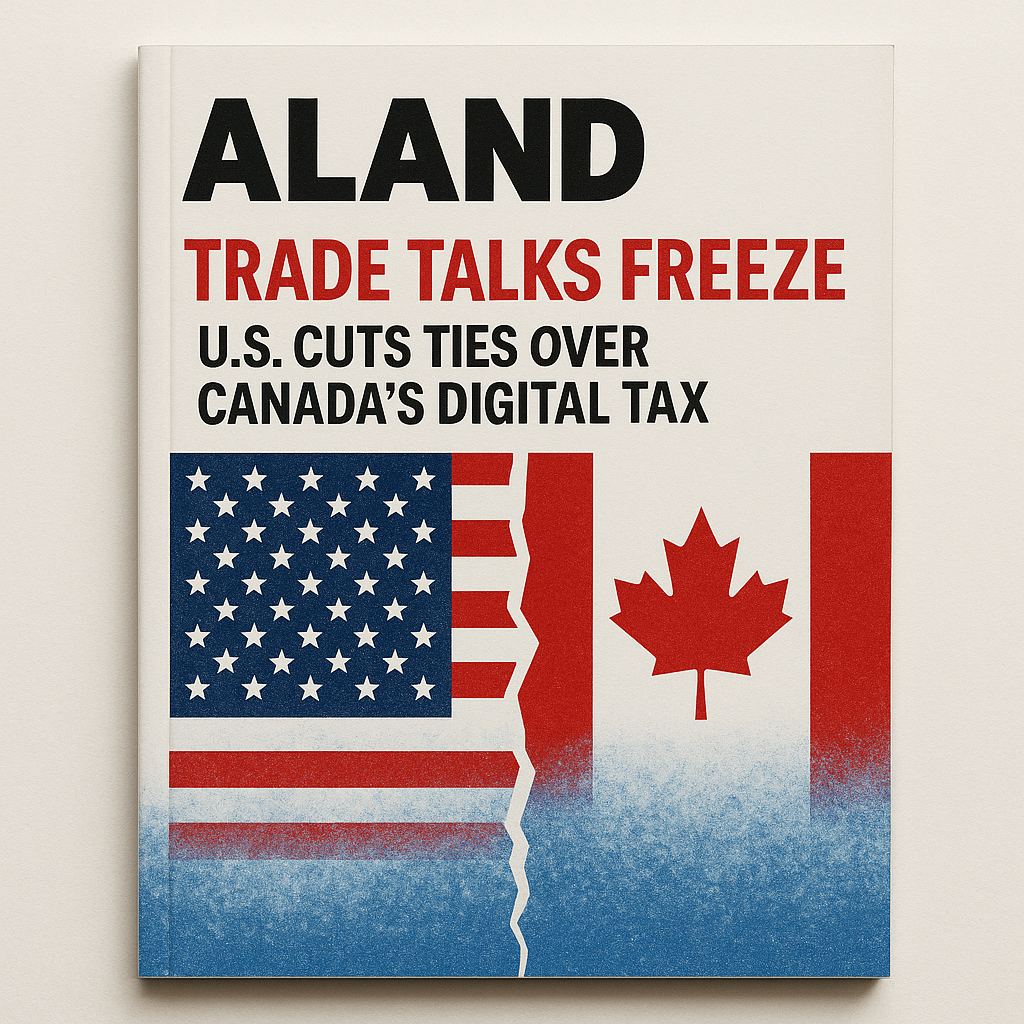Trade Talks Freeze: U.S. Cuts Ties Over Canada’s Digital Tax
Published Date: 28th Jun, 2025
Saturday, June 28, 2025
In a dramatic escalation of economic tensions, President Donald Trump announced on June 27 that the United States is terminating all trade negotiations with Canada. The move follows Canada’s implementation of a Digital Services Tax (DST), which Trump condemned as a “direct and blatant attack” on American technology firms.
A ‘Blatant Attack’ on U.S. Tech
The newly enacted DST imposes a 3% levy on revenues generated by large digital companies, including U.S. giants like Google, Meta, and Amazon, from Canadian users. The tax is retroactive to January 2022, with the first payments due on June 30, 2025. Estimates suggest that U.S. tech firms could face initial payments totaling up to $3 billion, with subsequent annual payments exceeding $1 billion.
President Trump expressed his outrage over the tax, stating, “This is a direct and blatant attack on our country.” He further criticized Canada as a “difficult country to trade with,” highlighting ongoing disputes over dairy tariffs and other trade issues.
Canada Stands Firm
Canadian Prime Minister Mark Carney responded swiftly, reaffirming Canada’s commitment to the DST and rejecting U.S. pressure to abandon the policy. He emphasized that the tax is designed to ensure that foreign tech companies contribute fairly to Canada’s economy. Finance Minister François-Philippe Champagne echoed this sentiment, stating that the legislation was passed by Parliament and would proceed as planned.
Despite the U.S. withdrawal from trade talks, Canadian officials have called for continued dialogue, underscoring the deep economic interdependence between the two nations. The U.S. accounts for over three-quarters of Canadian exports, and Canada represents a significant trading partner for the U.S.
Tech Industry Reacts
The U.S. tech industry has largely welcomed President Trump’s decision, viewing it as a necessary response to what they perceive as discriminatory taxation. Industry groups argue that the DST unfairly targets American companies and could set a precedent for similar measures in other countries.
In response to the tax, companies like Google and Amazon have already begun implementing surcharges on Canadian advertisers to offset the anticipated costs. These adjustments are expected to impact Canadian businesses that rely on digital advertising platforms.
Implications for the Future
The collapse of trade talks between the U.S. and Canada marks a significant setback in efforts to modernize the United States-Mexico-Canada Agreement (USMCA). The digital services tax is a key point of contention, and its implementation could lead to retaliatory measures, including tariffs on Canadian goods entering the U.S.
As the situation develops, both nations face the challenge of balancing domestic policy objectives with the need to maintain a stable and mutually beneficial trade relationship.
Date: 28th Jun, 2025

